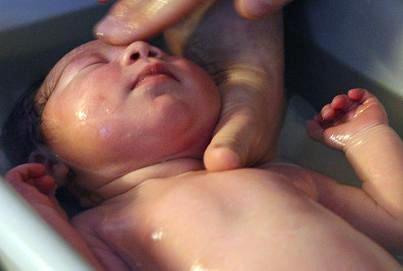
Children change very rapidly in their first few months. But if you think about it, for the child, the most spectacular change in the shortest period of time occurs at birth. Coming from a warm, protected, watery environment, where obtaining nourishment takes no effort at all, and they need to inhale (a liquid!) only for exercise, they suddenly emerge into a cold world where they have to breathe and eat for themselves. I recall a Scientific American article from 1963 by Clement A. Smith, called The First Breath, described as "A report on what is known of how a new infant becomes an air-breathing animal". A newly born baby needs to successfully make a rapid transition from getting its oxygen through the placenta to breathing with its lungs. In utero, a fetus certainly feels bumps and other motion, hears noises, and to some extent, senses light. Elissa reported that Dar, in utero, noticeably exhibited a startle response from time to time. Nevertheless, these disturbances were rather muffled, since she was well protected. But once in the outside world, all these sensations become much greater.
Human babies are born relatively helpless. In a great many species, babies are born, stand up, and start walking. In contrast, a new human baby can't do much more than sleep and eat. Some have referred to the first three months of a baby's life as "the fourth trimester", referring to the first three trimesters into which a pregnancy is generally divided. It's been generally thought that human infants are born early so that they can be delivered before their heads get too big to pass through the birth canal and the pelvis. But a relatively recent paper postulates a different reason. Take a look at the press release URI anthropologistís research refutes long-held theory on human gestation. In this work, Holly Dunsworth, an anthropologist at the University of Rhode Island, proposes that "Motherís metabolism, not birth canal size, limits gestation". In any event, Dar is still spending most of her time sleeping and eating, although her eyes are now open more than they were at first. Her nourishment, which she sucks down in ever increasing quantities, comes exclusively from her mother's milk. In her autobiography "Knock Wood", Candice Bergen describes finding it strange that her breasts could produce milk. She said it seemed as odd to her as if she had suddenly started sprouting broccoli from her elbows. Note 1 I'll close this entry with a few photos in honor of Dar's one-month birthday: 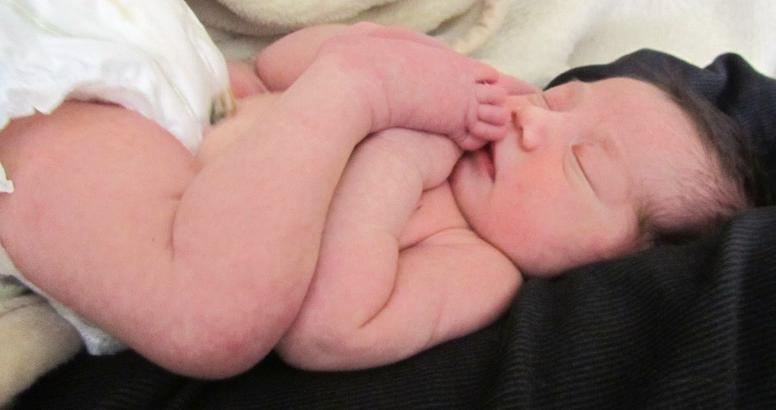 Here are some photos of Dar from a visit on March 25, 2013, nearly four weeks old. She still spends the majority of her time eating and sleeping, but when her eyes are open, she's starting to look around a lot more. You can click on the next four photos to enlarge them, and return with your "Back" button: 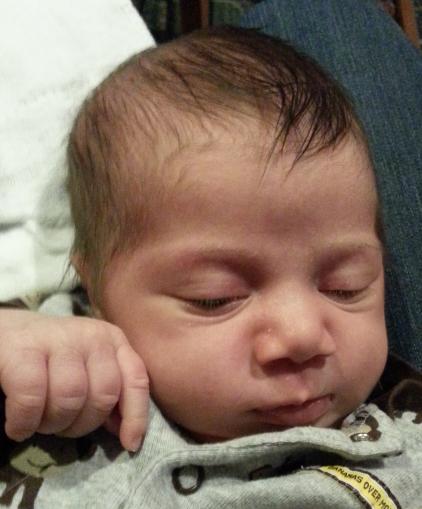 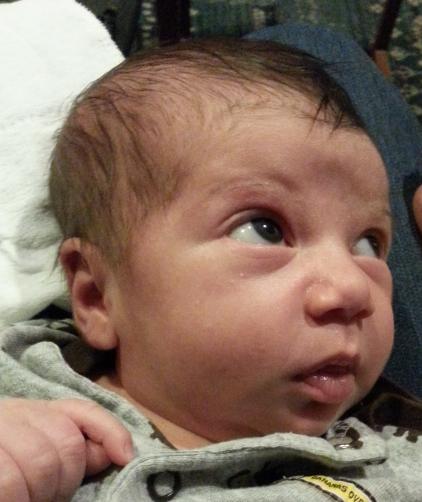 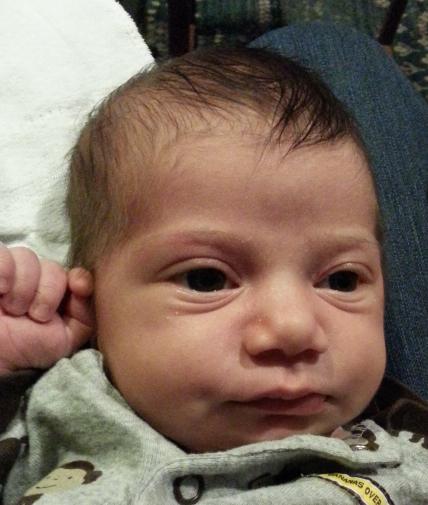 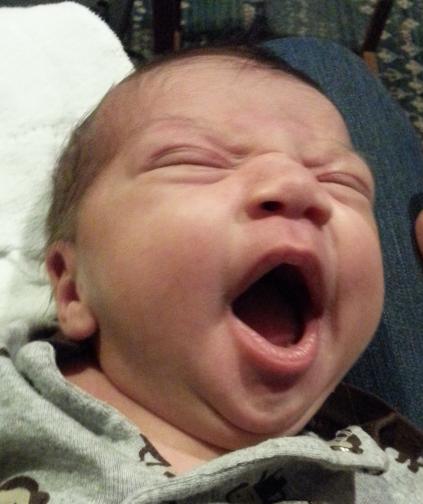 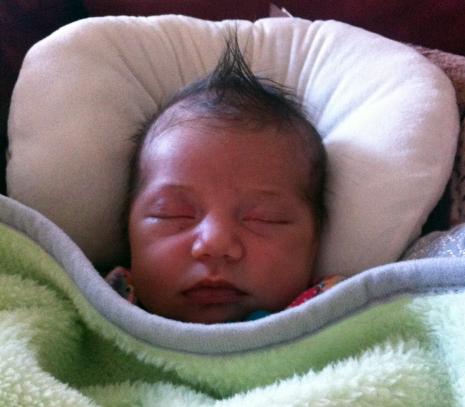 On the left below, here she is at 23 days, once again compared with her mother on the right: 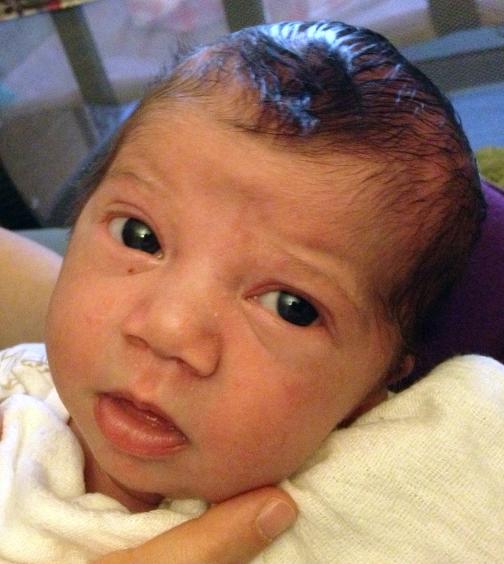 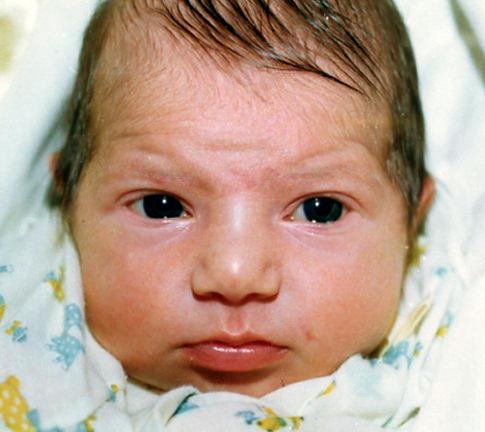 Aunt Sara's blog has an entry called Darwin and Change, with more pictures, and a video.
  Note 1:
Or something like that. I can't find the book - I think I may have given it away. See, Margie? I need to keep my old books. Forever! You never need to know when I may need to look something up. [return to text]
 |
